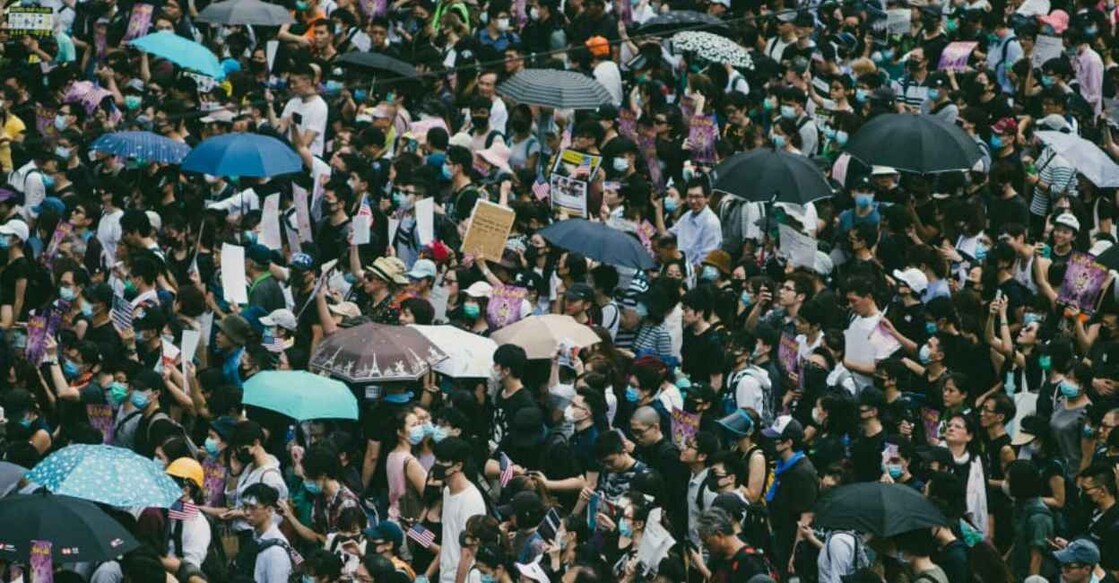Tharoor Line | Lessons to learn from China's flawed 1-child norm

Mail This Article
On Tuesday this week, the population of the world reached 8 billion (800 crores). I was at the United Nations when “Baby Six Billion” was born in 1999. Within a dozen years, in 2011, the seventh billion baby arrived, and now 11 years later, a baby born this week has taken the global population to 8 billion. These are remarkable figures when you realise that it was as recently as 1974 – when many of the readers of Malayala Manorama were already alive – that the 4 billion mark was attained. This means that in less than half a century, the population of the world has doubled.
In the 1970s, doomsayers, horrified by the four-billion figure, were predicting global collapse because of overpopulation, competition for scarce resources, lack of food and water, and worse. We have now doubled that figure and yet the dreaded apocalypse has not dawned on us. Next year India will overtake China to become the world’s most populous country, with over 1.4 billion (140 crore) people on our soil; since we still have a lot of young people whose reproductive years are yet to come, we will keep growing, reaching 1.7 billion (170 crore) by 2048. But then, like many others, we will decline as well, falling, according to estimates, to about 1.1 billion by the turn of the next century, in 2100.
These are largely natural cycles, rather than the result of human intervention. The story is different for China, which for decades was so worried about the prospect of uncontrolled population growth that it imposed a strict one-child policy from 1980 to 2015. They are now paying the price for the draconian imposition of that policy. New births in China are expected to fall to record lows this year, dropping below 10 million (1 crore) new babies, as opposed to 10.6 million in 2021 – and even that figure was already 11.5% lower than in 2020.

The Chinese authorities are now seriously alarmed by the population decline. After spending decades to control population growth, they are now dreading the prospect of an ageing society, with one adult, in many cases, having to support four grandparents. The government of China has now embarked upon the opposite policy, trying to encourage couples to have more children. Couples are now allowed to have up to three children rather than one, the previous limit. The authorities have announced tax breaks and cash handouts, as well as more generous maternity leave, medical insurance and housing subsidies, to encourage them to do so. But nothing is working.
Expert demographers who have studied the problem have concluded that the measures taken by the Chinese government are not enough to reverse the clear trend in favour of smaller families. The Chinese are facing the consequences of dramatic economic growth in the last 40 years: higher wages, creating scarcities in the job market; the increasingly high cost of education; and salaries that are still low enough to make parents think twice about a second child. Add to this certain specifically Chinese features, like the country’s notoriously long working hours, which leave very little time for parenting, along with the high cost of childcare and the success of the previous population-control policies, which mean there are no extended families with relatives available to help look after the children while the parents are away at work.
These are all major deterrents to having children in China today, and a few tax breaks are not going to change the picture that much. The result is striking. China's fertility rate of 1.16 in 2021 was below the 2.1 level that is required to achieve population stability (and is today among the lowest in the world). Young people of reproductive age are either stopping at one child or not getting married at all (or at best, postponing marriage till an age when they are even less keen on having children). In addition, the stress and anguish of China’s handling of the coronavirus pandemic – especially the overly coercive measures taken to eradicate it under President Xi Jinping’s “zero-tolerance for Covid” policy – has also served as a serious disincentive to having children.
No wonder the United Nations expects China's population to start shrinking from 2023, which is why India will overtake it to become the world’s most populous country.
The law of unintended consequences has also taken a toll on Beijing. The proportion of China’s population over the age of 65 is now about 13% and will only increase, leaving the country with fewer people of working age. Add to the problems of a declining labour force the inevitable continuing rise in wages, and China is unlikely to remain the fastest-growing major economy in the world.
Fewer working-age people will then have to take care of even more old people than today. China, once the engine of the world economy, will soon start looking like even more of an Old Age home than Japan does today.
We in India should take the trouble to study China’s experience and learn lessons from it before the same patterns cross the Himalayas later this century and affect us too.

Modi-Xi thaw
At the recent G-20 summit in Bali, Prime Minister Modi surprised observers by shaking President Xi’s hand and engaging with him in friendly conversation for a few minutes. Though no formal bilateral meeting was scheduled between the two men, and this took place in an unscripted manner, it is also true that it conveyed a deliberate signal from Mr Modi of his willingness to thaw the frost that had descended upon the two countries’ relationship after the killing of 20 Indian jawans in Galwan in June 2020. Whether this was merely because, as the incoming G-20 President (India takes over from Indonesia at the end of the present summit), Modi wanted to be friendly to all its members, or whether the government believes the time has come to talk to China, is not clear.
Such a decision cannot be taken lightly, since China’s was an unprovoked transgression, at the end of which the People’s Liberation Army has taken positions, and built enduring structures, on territory that both countries used to patrol for decades until May 2020. Till now, India’s stand had been that there could be no normal relations until the consequences of that aggression had been reversed and the status quo ante been restored. If the government is backing down from that principled stand, it needs to tell the Indian people why.


